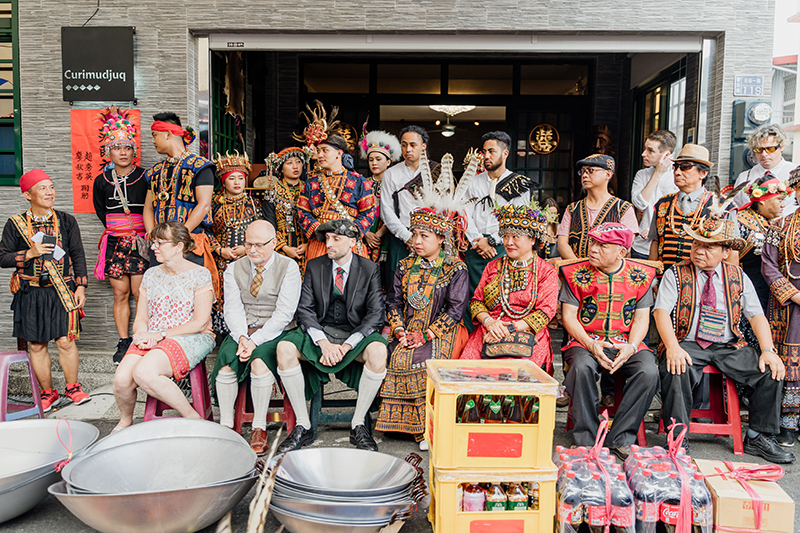Cross-cultural marriage generally attracts a lot of attention. But what might spark from a marriage when both parties are indigenous persons, and one of them the future community leader of an indigenous village? With love and tolerance, Dremedreman Curimudjuq and Daniel Moore slowly break through the boundaries and barriers of culture and nationality, and integrate each other's cultures into their lives with acceptance.
“D-j-e-l-j-e-q-i,” the Irish man in front of me is spelling his name, the Paiwan name recently given to him, meaning “the cliff.” The hard-earned name was the result of 10 years relationship, continuous effort to win the approval of the village people, and the marriage to Paiwan princess Dremedreman Curimudjuq. Djeljeqi will be staying in Taiwan in the future, sturdy and firm like the rock cliff as entailed by his name, and help his wife become the community leader of the indigenous village as well as the solid support of the family.
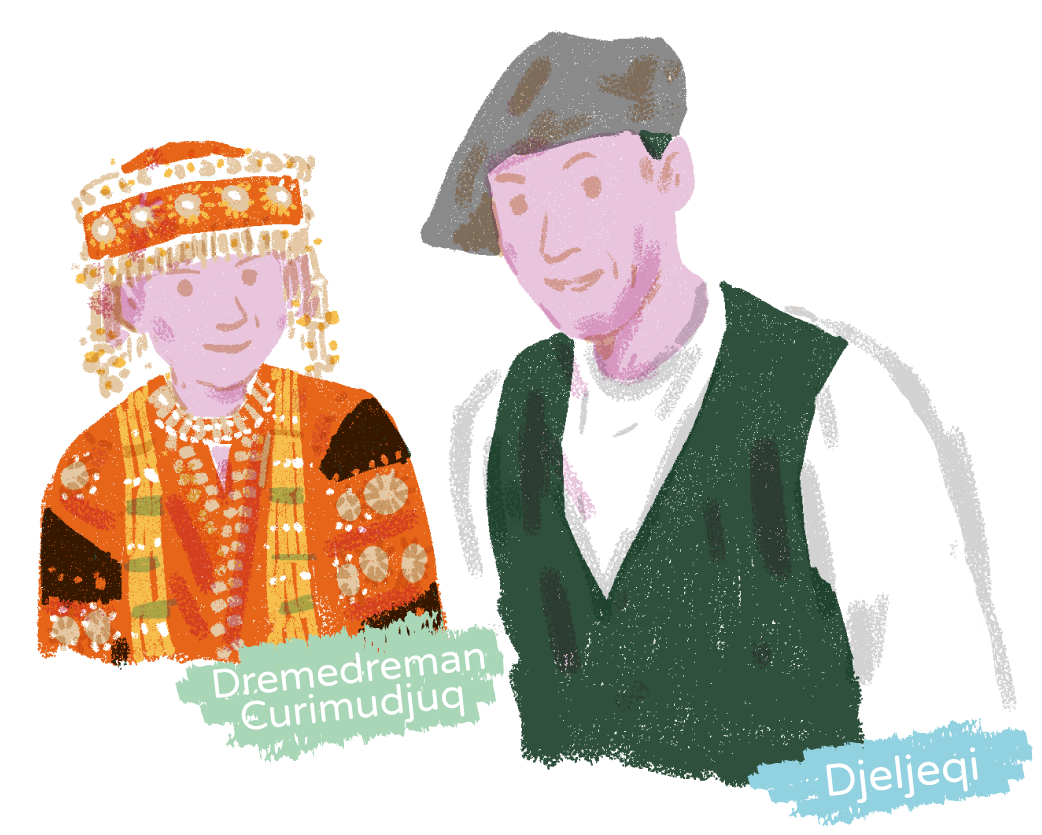
Cross-Cultural Indigenous Love
Transcending Border, Race, and Culture
Accepted to a graduate school in UK in 2009, Dremedreman Curimudjuq wanted to brush up on her English. She looked for a foreigner as pen pal online and accidentally connected with Daniel Moore, who was a sailor traveling on open waters without Wi-Fi then.
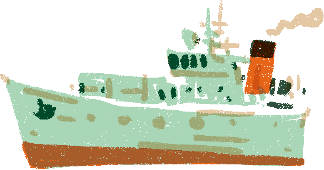 Dremedreman Curimudjuq and Daniel Moore overcame a distance of 10,148 kilometers on map and connected the indigenous cultures of the Paiwan people and Northern Ireland across the waters. However, as the firstborn in a Paiwan family and set to assume the status of community leader in the future, her marriage is not up to her to decide. “I'm the first one in my family to marry a foreigner,” says Dremedreman Curimudjuq. This relationship has been anything but easy. In the 10 years of their relationship, although her family knew she had a boyfriend, they continued to introduce guys who are “appropriate matches” to her.
Dremedreman Curimudjuq and Daniel Moore overcame a distance of 10,148 kilometers on map and connected the indigenous cultures of the Paiwan people and Northern Ireland across the waters. However, as the firstborn in a Paiwan family and set to assume the status of community leader in the future, her marriage is not up to her to decide. “I'm the first one in my family to marry a foreigner,” says Dremedreman Curimudjuq. This relationship has been anything but easy. In the 10 years of their relationship, although her family knew she had a boyfriend, they continued to introduce guys who are “appropriate matches” to her.
To make her family and her people really accept this relationship, Dremedreman Curimudjuq decided to take her boyfriend back to her indigenous village. This was the first time she brought any of her dates back to the village, because she knows that if she brings them home, it will send them flying with terror. However, Daniel Moore did not have any second thoughts, his determination finally made everyone back off. Slowly, family members who did not approve of the relationship to begin with accepted the fact that this foreigner is going to be their in-law.
Encouraged by Her Boyfriend
She Returns Home to Assume the Responsibility as Future Community Leader
A little something happened before they got married, but not many people knew about it. Her parents were cruelly discriminated against by Non-indigenous in the past, with Dremedreman Curimudjuq born to become the future community leader, she grew up with her parents expecting her to outperform the Non-indigenous, and was sent to the neighboring town for school with extra classes after school was out. In addition, her mother began managing the entire village at the age of 23, experiencing the various ups and downs, thus more stringent in bringing up her future successor. All of which made her want to escape.
“The course of my education was in fact the route of my escape,” says Dremedreman Curimudjuq softly. Growing up watching her mother as the community leader, she has long made up her mind to never walk in her mother's shoes. She continued to find excuses to escape, boarding school in senior high school, changed her choice at the last minute and relocated to Tainan to attend university, and finally applying to a school in Austria before getting her master's degree in UK.
But the seemingly legitimate escape route came to an end after she met Daniel. As a Northern Ireland indigenous person, Daniel shares a similar cultural background with her, even the jokes they make are similarly direct. She recalls mentioning to her English landlord that her boyfriend is from Northern Ireland, her landlord immediately replied, “in that case, he must talk really loudly and enjoy more than a pint, right?” Angrily, Dremedreman Curimudjuq realized that stereotypes against indigenous persons are the same everywhere. Later on, whenever Daniel, who is enthusiastic about indigenous cultures, asked her stories about the Paiwan culture, she had no answers. After a while, Daniel could not help but say to her, “please don't tell people that you're a Paiwan person because you know nothing about you, and that's embarrassing.” As a Northern Ireland indigenous person, Daniel can share thoroughly the context of development regarding Northern Ireland and UK and is well aware of his family history. He believes that as a Paiwan person, Dremedreman Curimudjuq naturally must understand the culture of her own family, “I think you need to go home.” Daniels's words threw Dremedreman Curimudjuq into long contemplation. After much thought, she decided to end her education-disguised escape, and come home to assume her responsibilities.
Upon her return to the village, in addition to allowing her people to slowly get to know and accept Daniel, Dremedreman Curimudjuq also begun getting involved in village affairs. Increasingly, she understood the responsibilities shouldered by her mother as the community leader, and learnt about the Paiwan culture little by little, understanding the weight and status of herself in the hearts of her people.
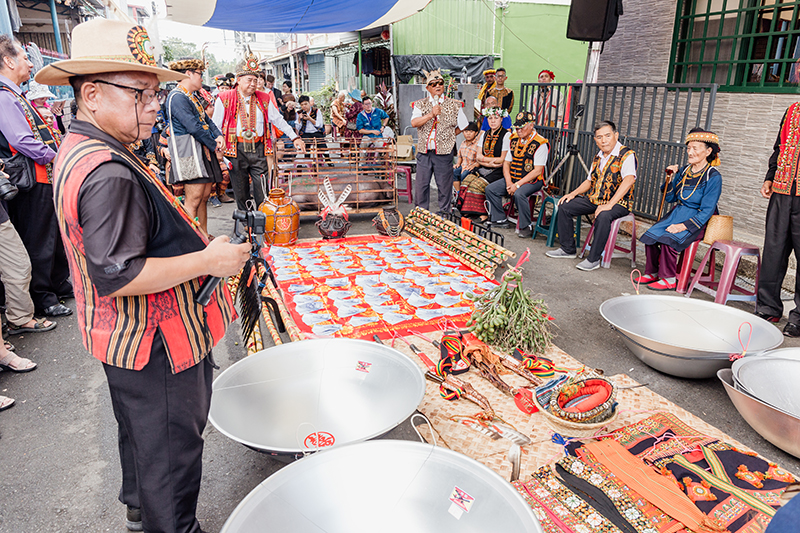
Wedding in the community leader's family is a big deal in the indigenous village, and coupled with interracial marriage, the gathering of the two families is magnificently contradictory yet harmonious.
The Unprecedented Cross-cultural Wedding
Bringing Together Two Indigenous Cultures
The test that followed was their wedding, which was not only a union of different nations and races, but an unprecedented wedding to Tjuvecekadan Village. As the founding family of Tjuvecekadan and her status as community leader, Dremedreman Curimudjuq is from an extremely noble family line and therefore the procedure and dowry of her wedding must both be of the highest standard. This is the final line drawn by her family after they finally approved of a foreigner as their future in-law.
Following the traditional Paiwan wedding procedure, the groom must propose three times before the wedding. Taking into consideration that Daniel is a foreigner and not to wear his family down by repeated flights and travels, the second and third proposal rituals were carried out consecutively in the following two days. During the third proposal ritual, a rare sight of Irish objects was also seen in Tjuvecekadan. The groom and his family put on traditional Irish clothing, brought with them betel nuts, millet wine and sticky rice cakes, essentials of a proposal, as well as Irish whiskey and bodhran. They even brought a flag bearing their family crest, symbolizing the fact that they are officially becoming a family with the Paiwan community.
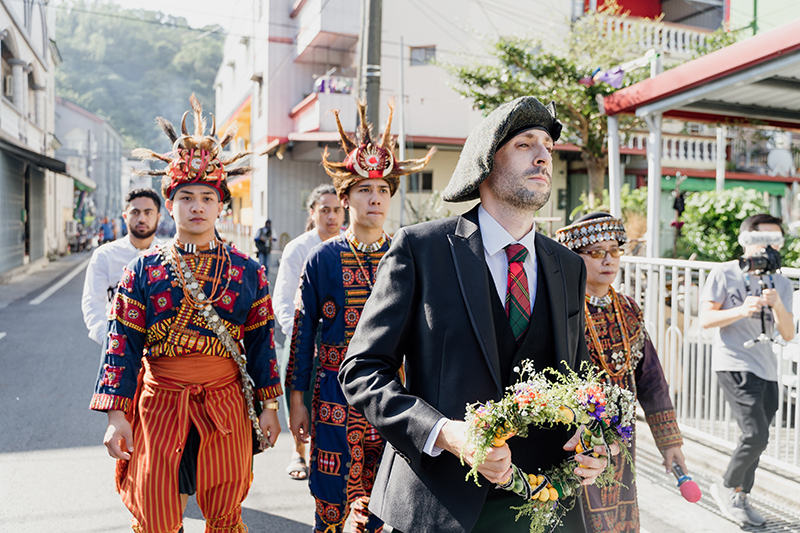
The wedding in the following year was one of the biggest events in Tjuvecekadan in recent years. The wedding lasted three whole days with a traditional round dance on the first night, followed by the traditional wedding ritual and noon reception for guests on the second day, and the third day is the comprehensive traditional ritual between the new couple, ending with a reception for family and everyone who helped with the wedding.
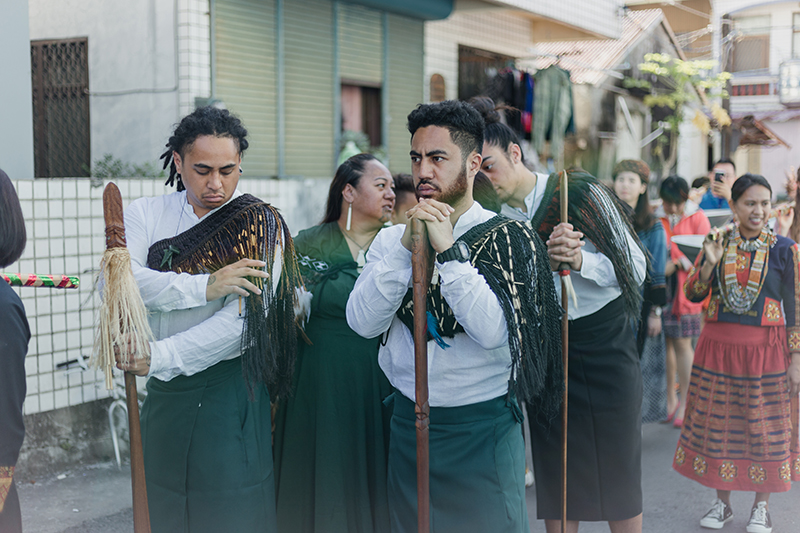
The groom's family all flew to Taiwan from Ireland. Witnessing for the first time, hunters firing their guns at the Paiwan wedding to welcome the newly wed, the lively round dance and various traditional Paiwan rituals, the foreign guest were all fascinated. Daniel smiles and says, the cultural difference wasn't a problem, but when his family attended the wedding, they were stunned by the number of people present, they had not expected the wedding to be attended by everyone in the entire village. Dremedreman Curimudjuq laughs out loud, “because I have ten uncles to start with!”
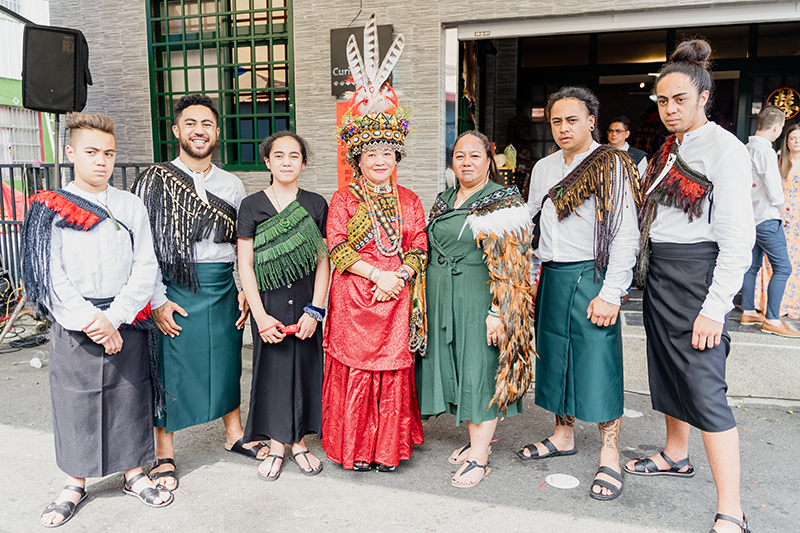
Truthfully told, cultural clash happens all the time, before or after the wedding. Dremedreman Curimudjuq jokingly says that their life at home is like the live version of WTO Sisters Show, a TV program featuring foreigners talking about cultural differences, but they have also gained more profound insight into each other's culture. She's glad that the two of them are alike in personality, and seek the same values, she is even more grateful that her husband decided to forfeit his dream of joining hospital ships and stay with her instead in the village to fulfill her obligation as the community leader family. Passionate about Paiwan culture, Daniel is now an indispensable member of the village. Not only is he always thinking about what else he can do for the village, but he insists on hiking back to the old Tjuvecekadan Village and experience the vast horizon and serenity, much like his homeland, deep in the mountains.“I joined his hiking trip once, but halfway through we met someone we knew driving past, and I hitchhiked with them without hesitation. Why walk when you can ride?” Dremedreman Curimudjuq laughs.
Now given a Paiwan name and wearing the Paiwan necklace given by his mother-in-law the village chief, Pjeljeqi senses the expectations elders in the village have for him to be solid as the cliff, and support his wife and the family no matter what the challenges and obstacles may be. Hand in hand, the couple integrates into the Paiwan community, discovering and experiencing together the culture of their village. In the future, they will also travel to Northern Ireland and experience a different kind of indigenous customs and culture.
